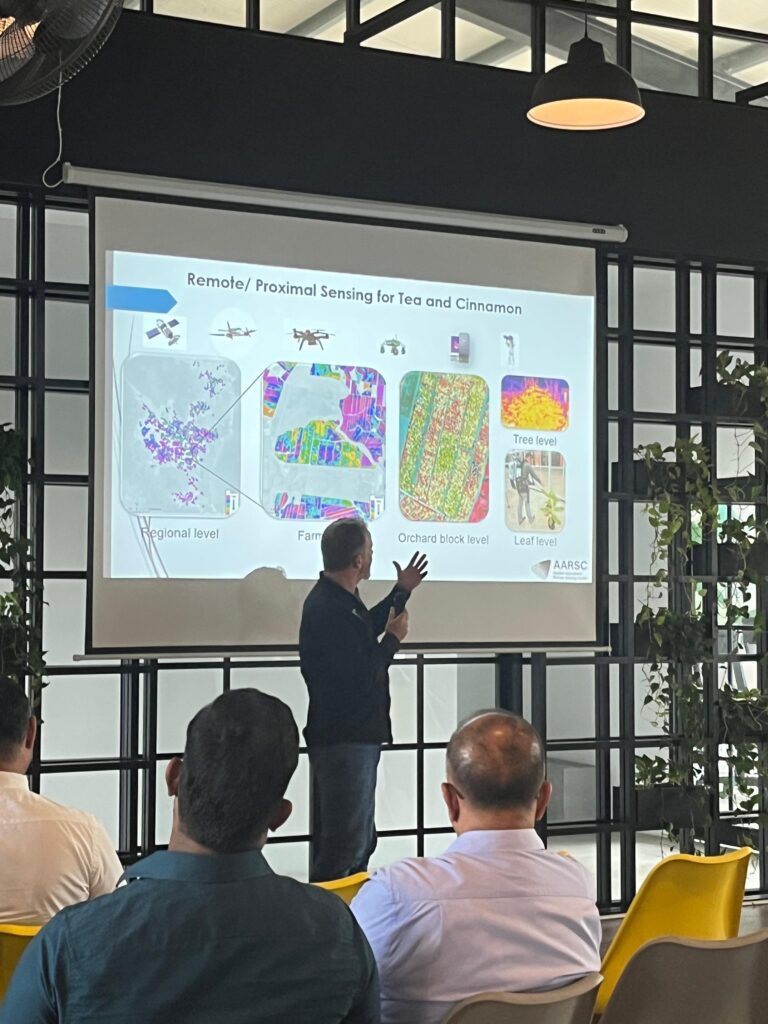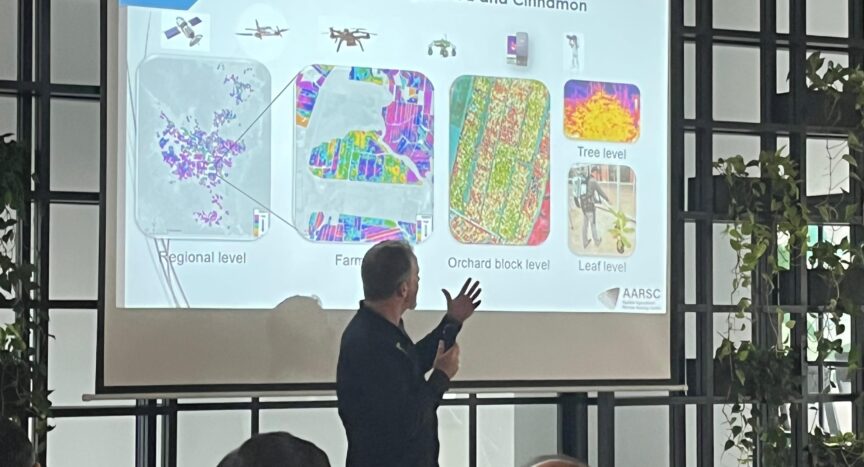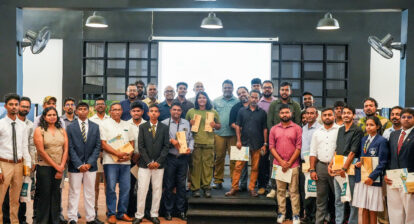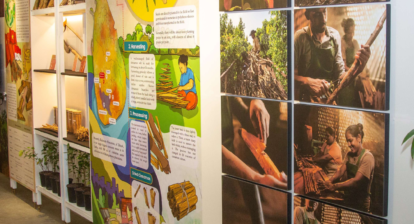As part of our efforts to explore smarter, more sustainable ways of working in the plantation sector, we recently welcomed Prof. Andrew Robson and Craig Shephard from the University of New England, Australia.
Their work with us began during a visit in October last year, with an initial focus on improving productivity at Kahawatte Plantations. The idea was to begin gathering field-level data, to create digital maps and generate insights that could help forecast and plan more effectively.

Remote Sensing Centre at the University of New England

Sensing Centre at the University of New England
This recent session held at Genesis by Dilmah, on their second visit, was an opportunity to share the progress made since that first visit and to open up the conversation to a wider audience across the plantation sector. It focused on how GIS mapping and remote sensing can support better decision-making, more efficient use of resources, and improved environmental resilience on the ground.

These tools offer practical applications, from mapping and planning to monitoring changes over time, while helping safeguard the landscapes that tea depends on.


Organised in collaboration with Dilmah Ceylon Tea Company, the University of New England, Kahawatte Plantations, the Agriculture Innovation Nucleus, Dilmah Conservation, and Genesis, the session encouraged knowledge-sharing and cross-sector collaboration. The goal is to keep building on this momentum, linking technology with sustainability to support both environmental and financial resilience in the years ahead.







